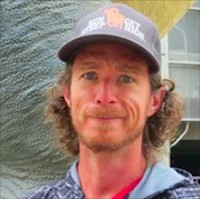Earlier this month while visiting family in North Carolina I had the opportunity to attend the Duke Faith Council’s 3rd Annual Spring Dialogue entitled Saving the Earth: What can faith traditions teach us about the environment. The panel of guest speakers included Rabbi Arthur Waskow, Dr. Seyyed Hossein Nasr, Dr. Stephanie Kaza, Dr. Umesh Gulati, and Dr. Norman Wirzba. This gathering was an inspiring display of spiritual evolution going beyond the boundaries of religion. So rather than reporting on the panel here are some thoughts inspired by the panel.
God’s Breath
Rabbi Arthur Waskow provided many stirring utterances of faith and ecological concern. He described God as the vital breath of all creatures, a harmonizing factor for all life. With tears in his eyes he exclaimed, the current “global scorching” is “strangling God.” Generally the panel seemed to agree, climate change progressively cripples the essential needs of all creation and ought to be seen as an abhorrent and immanent threat to all people of faith (regardless of belief or creed). Rabbi Waskow’s final prescription, by far the most dynamic, included a tinge of the revolutionary, “Remember Pharaoh!” he proclaimed. Pharaoh is the one keeping us in bondage, slaves to oil, slaves to fame and power, unable to act virtuously as a result of a crippling dependency on cultural tradition. One solution: start seeing where Pharaoh dwells, in personal life and society. Then, follow morality and divine guidance rather than power and greed.
An O-So Buddhist (or contemporary human?) Dilemma
Dr. Stephanie Kaza offered up the Buddhist solution of realizing interdependency but noted that Buddhists have a great deal to learn when it comes to social outreach. I remember a lecture by Fleet Maul on the topic of social action in which he suggested, “Change yourself. Change the world.” This famous phrase is oft quoted and has its merits, the least of which is to enable modern-America’s insatiable need for self-help. The power of ones inner transformation can only have useful implications when it is expressed selflessly through community. Unfortunately self-transformation, from personal experience, can easily become self-obsession and therefore must be moderated by healthy doses of communal engagement. Which leads me to one of Dr. Kaza’s most brilliant moments (of religious-communalism) when she suggested American Buddhist’s could learn many things from the humanitarian efforts of Christian communities across the globe. Americans are such a wounded people, wounded by privilege and luxury, looking to heal what ales us. Perhaps we could better heal ourselves by turning our energies (physical, emotional, spiritual) to the benefit of others.
Can religious institutions stop human degredation of the planet? Of course not. However, as Dr. Nasr pointed out, if every priest, pastor, imam, roshi, rinpoche, guru, and rabbi came out and said “We have a problem. Our world is in peril, and we are going to start making a difference,” then there would be many more millions working today for the welfare of our planet.






Read 0 comments and reply